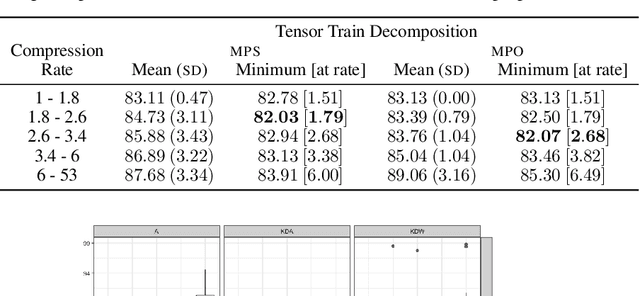Ramchalam Ramakrishnan
Tensor train decompositions on recurrent networks
Jun 09, 2020



Abstract:Recurrent neural networks (RNN) such as long-short-term memory (LSTM) networks are essential in a multitude of daily live tasks such as speech, language, video, and multimodal learning. The shift from cloud to edge computation intensifies the need to contain the growth of RNN parameters. Current research on RNN shows that despite the performance obtained on convolutional neural networks (CNN), keeping a good performance in compressed RNNs is still a challenge. Most of the literature on compression focuses on CNNs using matrix product (MPO) operator tensor trains. However, matrix product state (MPS) tensor trains have more attractive features than MPOs, in terms of storage reduction and computing time at inference. We show that MPS tensor trains should be at the forefront of LSTM network compression through a theoretical analysis and practical experiments on NLP task.
 Add to Chrome
Add to Chrome Add to Firefox
Add to Firefox Add to Edge
Add to Edge